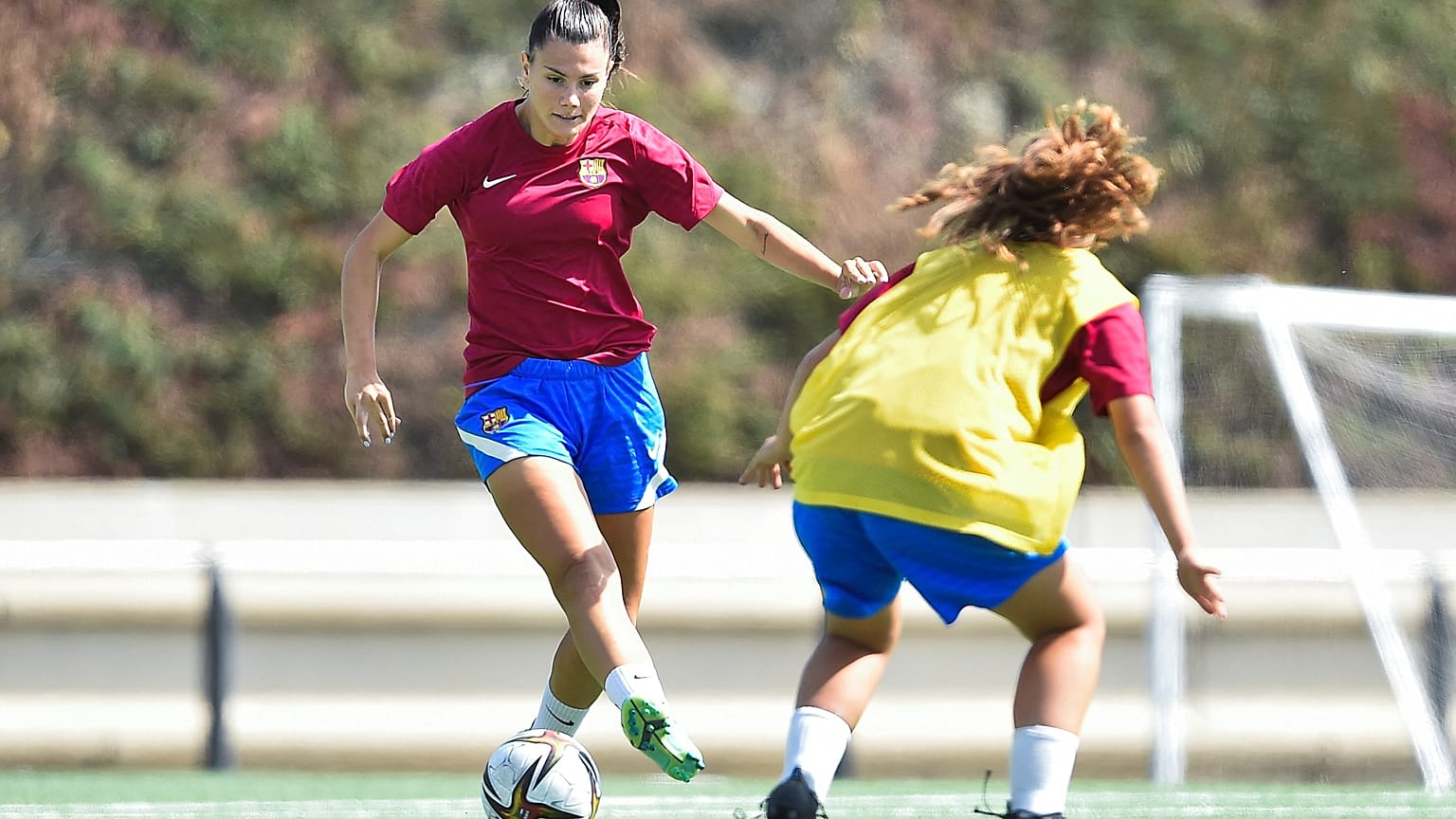For the first time, girls and women have gained entry to the legendary training centre, which has honed the talents of male stars such as Lionel Messi, Xavi and Andres Iniesta.
Barcelona’s youth academy, La Masia, has been the envy of world football for years due to the sheer number of talents that have graduated to the first team and gone on to have remarkable careers.
 ADVERTISEMENT
ADVERTISEMENT
 ADVERTISEMENT
ADVERTISEMENT
The likes of Carles Puyol, Lionel Messi, Xavi, Andres Iniesta, and Sergio Busquets came through the youth system.
Now, for the first time, girls and women have gained entry to the legendary training centre.
Since its creation in 1979, in an old building close to the Camp Nou stadium, then its move ten years ago near the club's training centre in the suburbs of Barcelona, La Masia had never accepted girls among its residents.
Nine “pioneers” have this year joined the academy, which finally opened its doors to women after recent triumphs of the women’s Barça, which won La Liga, the domestic cup and the Champions League last season.
"It's a very big responsibility, we are pioneers. But it's especially nice to know that you'll always be one of the first to enter La Masia," said Laura Coronado, an 18-year-old goalkeeper and dietetics student, sitting in the garden of the training centre.
One new resident, 18-year-old Clàudia Riumallo, used to have to drive an hour from Girona to train in Barcelona with girls of her own calibre.
With the chance to stay in La Masia as a resident, she calls the change “a gift”.
She played for Espanyol, the other major professional club in the Catalan metropolis, and now plays for Barça B while studying chemistry at university.
In addition to their hat-trick of titles last season, the women's Barça team won all of the individual awards presented by UEFA in August.
The award for best player of the season went to captain Alexia Putellas, who is also one of four Barça players nominated for the Women's Golden Ball.
Things aren’t looking so good for the men’s team, which has seen Ronald Koeman dismissed as manager amid poor performances, and former midfielder Xavi come in to take the helm.
The men’s team famously won 4-0 against Levante with a starting eleven made up entirely of La Masia graduates (for the first 60 minutes) in 2012.
"The way forward is very simple. You only have to look at the men's team to know where we need to go," says Markel Zubizarreta, Barça's women's football manager.
Barça were at the top of Europe at that time and far from imagining that the women's section would continue to feed the trophy cabinet while the men's team faltered.
Women’s football on the up in Spain
The presence of women in Spanish football continues to grow. The number of female licence holders has almost doubled since 2011, rising from 36,200 (4.3% of the total number of licence holders in Spain) to 77,400 in 2020 (7.2% of the total), according to the Ministry of Sport.
"There are still many things missing, such as the professionalisation of La Liga", the principle of which has been accepted but which is still not a reality, notes Laura Coronado.
"We know that the salaries will not be equivalent to those of men, but we would like to be able to live more comfortably from football. We are fighting for that," she says.
Like many girls of her generation, Jana Fernandez, now in the Barça first team at 19, never shared a dressing room with girls before the age of 12.
She went through the club's youth teams, but was not lucky enough to be a boarder at La Masia.
"I often remind the girls who are there now. I'd love to have been there," says the defender, who is studying advertising at the same time as her career and is aware that there is still a long way to go for girls in Spanish football.
"We're fighting every day to get more things for the girls of today, and especially for the girls of tomorrow," she adds.














